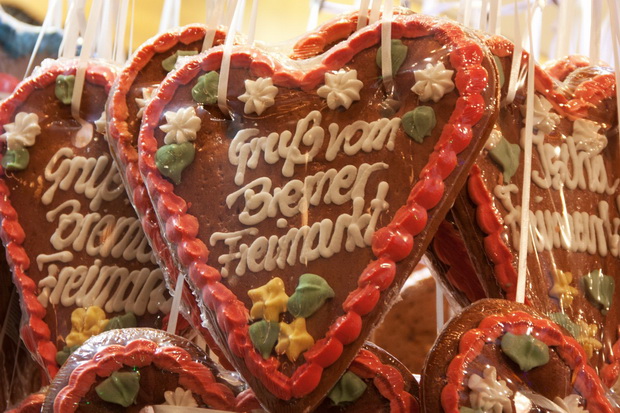There are many important examples of artistic works, skills and handmade crafts to be found all over Germany, which help to maintain the independence and authenticity of each region and continue to shape the landscapes today. Artisan workshops are open to the public and have also become tourist attractions. Under the caption “Arts and crafts”, the German National Tourist Board (GNTB) has summarised this fascinating heritage as part of its “Traditions and Customs” campaign.

Black Forest Cuckoo Clock Photo by Gundhard Marth / GNTB
The cuckoo clock was invented in the Black Forest in the mid-19th century and for the most part is still modelled on the original design.

Schonach / Black Forest – The Biggest Cuckoo Clock in the World Photo: Baden-Wurttemberg / GNTB
Dancing and eating has been going on in this traditional, iconic dance hall for more than 100 years. 
Gingerbread Hearts Photo by Gundhard Marth / GNTB
At the open-air museum Lehde, you can see how a typical Spreewald barge is built. It takes around eight days for a master builder to build one before it glides along on the canals for around 30 years.
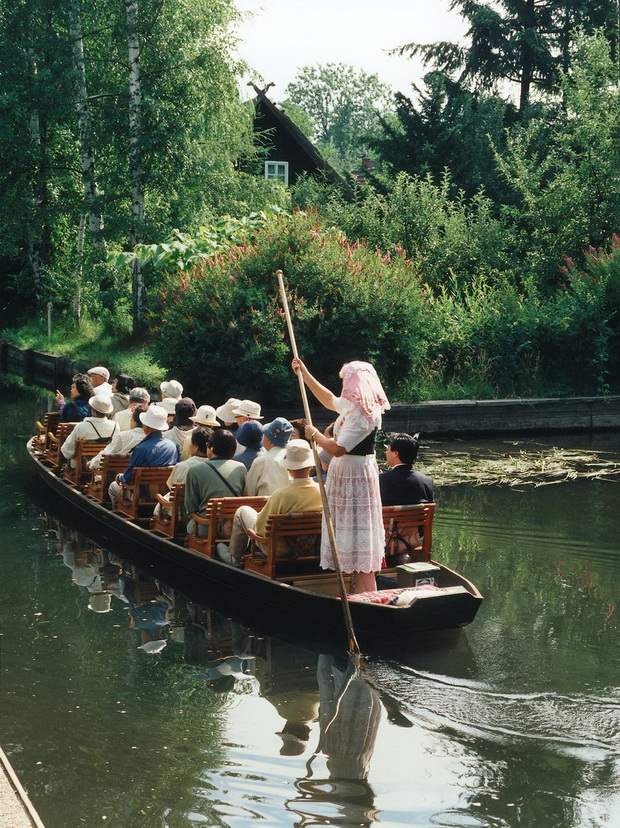
Lubbenau / Lehde – Punting Trip in the Spree Forest, Brandenburg Photo by Andreas Kaster / GNTB
The Hanseatic city of Bremen is considered the capital of the ship building industry. The first commercial airport in Germany was built here and is where the European module for the international space station was assembled. The city is also home to more than 600 automotive suppliers. 
Bremen – Universum Science Center Photo: Bremer Touristik-Zentrale GmbH (BTZ) / GNTB
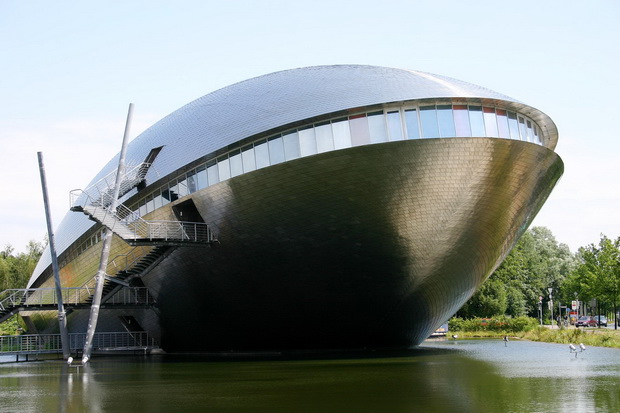
Bremen – Universum Science Center Photo: Universum_Managementgesellschaft mbH / GNTB
The International Maritime Museum in Hamburg is a must for everyone with an interest in the different facets of the sea and shipping.

Hamburg / The Harbour and the Queen Mary 2 Photo by photodesign Ingo Boelter / Deutsche Zentrale für Tourismus e.V. / GNTB
The open-air museum Hessenpark in Taunus is the place to experience the Hessian hand crafted traditions in close quarters.

Hessenpark, Taunus Photo by Gundhard Marth / GNTB
The museum named after the German aviation pioneer tells the story of the beginnings of aviation at the end of the 19th century.
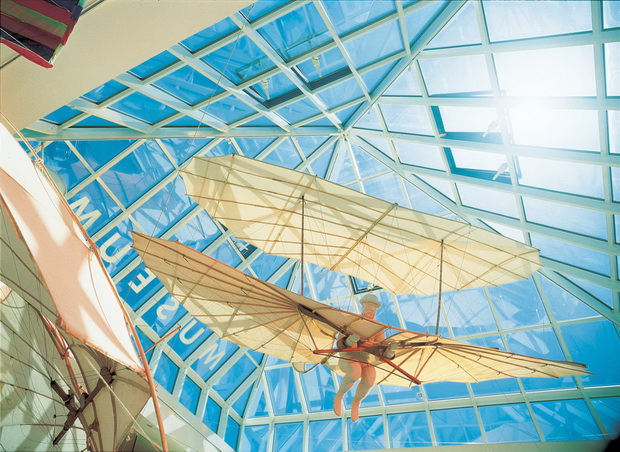
Anklam / Otto-Lilienthal Museum, Mecklenburgischer Seen-Radweg Photo: Tourismusverband Mecklenburg-Vorpommern e.V. / GNTB
Blue print is a colouring process for linen and cotton fabrics that creates white patterns on a blue background. It is a reserve print with so-called moulds, with which the fabric is printed, using an adhesive protective mass, and then coloured with indigo.

Sorbish Easter Eggs in Blue Print, Saxony Photo by Sylvio Dittrich / Marketing Gesellschaft Oberlausitz-Niederschlesien / GNTB
Themed routes throughout the state lead to all kinds of different industrial monuments, including collieries, gas-metres, coking plants, blast furnaces, production and hydraulic plants.

Essen / Zollverein Coal Mine Industrial Complex, Winding Tower XII Photo by Thomas Willemsen / Stiftung Zollverein / GNTB
Behind the baroque facade of the former Benedictine abbey Mettlach, the world’s largest ceramics company has been manufacturing ceramics here for more than 260 years. A ceramic museum provides information about the history of the family dynasty.
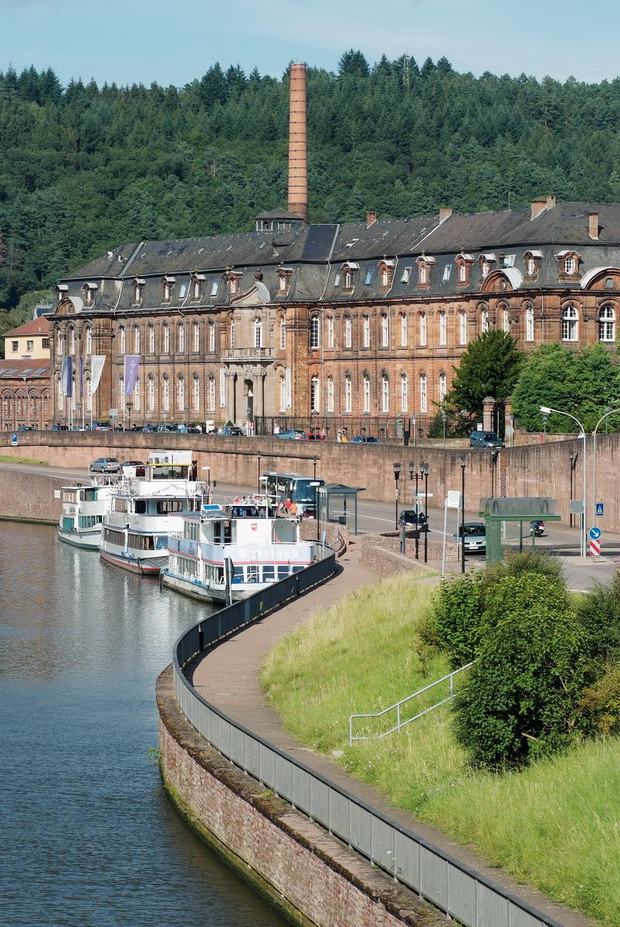
Mettlach / Abbey Garden, Administrative Centre of Villeroy & Boch Photo by Photodesigner Mark Wohlrab / Deutsche Zentrale für Tourismus e.V. / GNTB
The Erzgebirge mountains, known for their idyllic scenery and their 800-year-old mining history, are home to a unique woodcarving tradition.
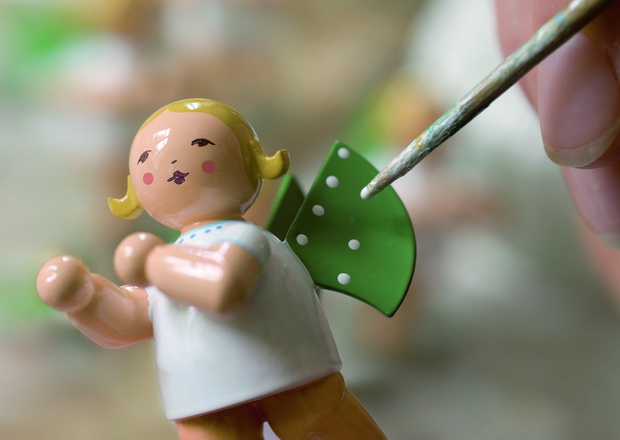
Eleven Dot Angels by Wendt Kuehn Photo by Rummler, S + M / Wendt & Kuhn KG / GNTB
At the Technical Salt-Panners and Saline Museum in Halle/Saale (city of the rich brine springs), the salt-panners still extract salt according to ancient traditions. Visitors can watch them at work.
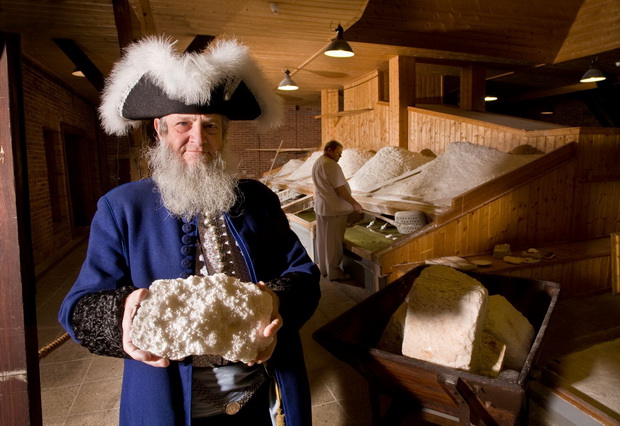
Thale (Harz) Salt Photo by Thomas Ziegler / Stadt Halle (Saale) / GNTB
The abundance of clay led to the establishment of the faience earthenware factories and it is possible to visit many ceramic workshops.

Eutin Castle Photo by Michael Pasdzior / DZTStiftung Schloss Eutin / GNTB
The glass ornaments that adorn the Christmas tree – the Christmas tree baubles – originated from Lauscha. Visitors can watch the glass blowers show off their work in their workshops and buy some ornaments.

Lauscha – Gaffer Photo: Krebs Glas Lauscha GmbH / GNTB
Further information about the “Traditions and Customs” campaign theme can be found at www.germany.travel/tradition.
Cover photo: The Bremen Freimarkt Photo by Carolin Hinz / Bremer Touristik-Zentrale GmbH (BTZ) / GNTB
